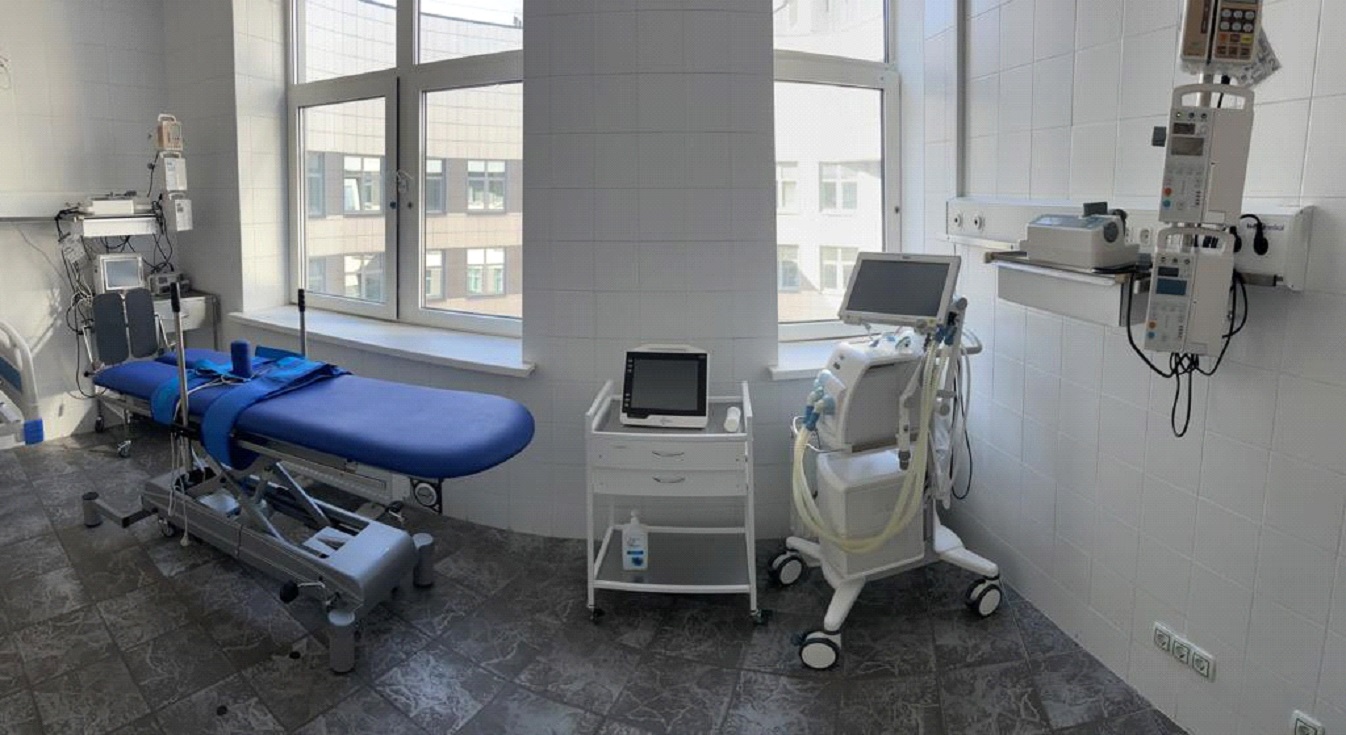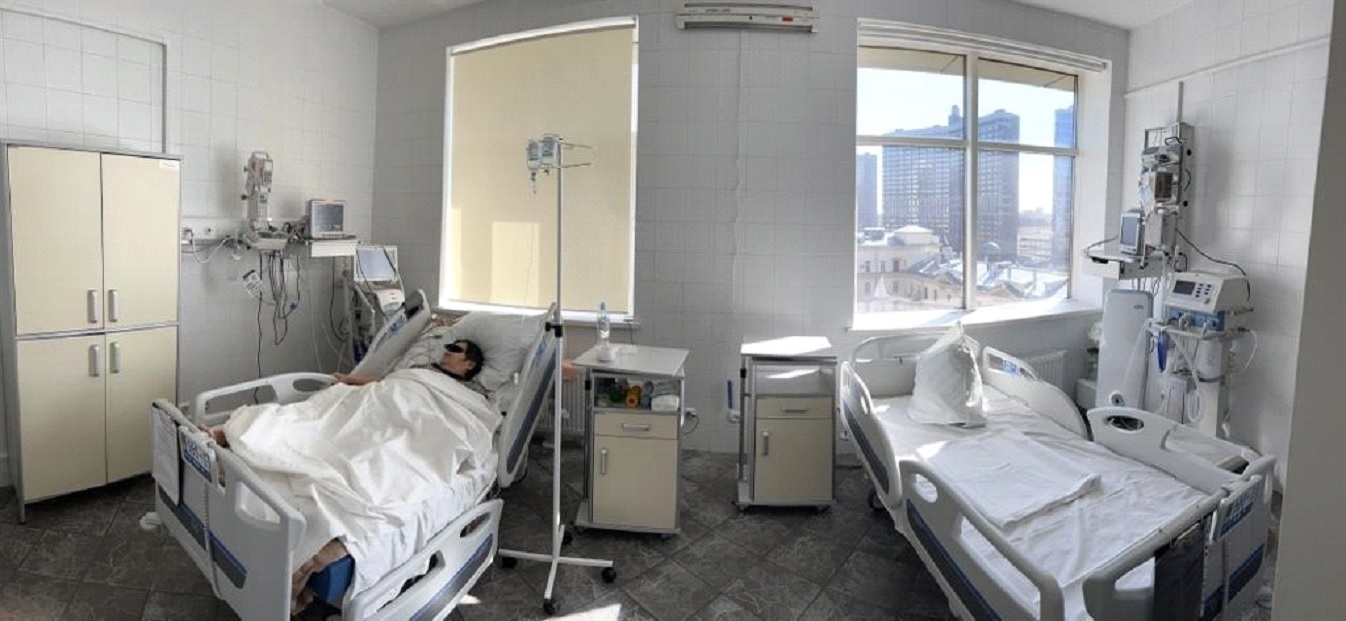Intensive care unit
The intensive care unit of the FSBI "NMRC RB" provides the second stage of medical rehabilitation treatment in the early recovery period of the disease or injury, the late rehabilitation period, the period of after effects of the disease to those in need of supervision by specialists in their field of care, high-intensity rehabilitation, as well as those requiring outside assistance for self-care, movement and communication, if there is a confirmed prospect of functional recovery (rehabilitation potential).

- Monitoring the state of consciousness;
- Monitoring the respiratory function;
- Monitoring of haemodynamics;
- Thermoregulation monitoring;
- Monitoring of the excretory function;
- Correction of the altered psychoemotional state;
- Correction of abnormal muscle tone;
- Prevention of thromboembolic complications;
- Ensuring adequate nutritional support;
- Assessment and correction of dysphagia;
- Positional treatment - laying the paralyzed limbs in physiological positions that prevent contractures, pain syndrome and '"vicious postures".
- doctors who are specialists in specific fields of medical care;
- an anaesthesiologist and emergency physician (providing monitoring of the patient's condition);
- a medical rehabilitation doctor;
- an exercise therapist - prescribing individual exercise therapy sessions at the patient's bedside, mechanotherapy (motomed, artramot, passive verticalisation with a verticaliser, followed by active verticalisation with Andago system to restore walking function with the patient's body weight reduced);
- a physiotherapist (prescribing physiotherapy procedures such as: magnetotherapy, laser therapy, transcranial magnetic stimulation of the brain);
- a medical psychologist (neuropsychologist), followed by permanent sessions for psycho-emotional relief;
- a medical psychologist (neuropsychologist), followed by permanent sessions aimed at correcting the psycho-emotional relief;
- an occupational therapist to correct functional and motor skills.
Individual medical rehabilitation involves a multidisciplinary approach to the implementation of rehabilitation measures - a combination of medical, pedagogical, vocational and social measures in collaboration with specialists in different fields, including various types of assistance to overcome the consequences of the disease, lifestyle changes, reduction of exposure to risk factors in order to determine the purpose of rehabilitation, the need and sufficiency, duration, sequence and effectiveness of each professional's involvement at any given time in the rehabilitation process.

The main objectives of the early rehabilitation programme are:
- maintenance of spontaneous remission, activation of syngenetic mechanisms;
- restoration or compensation of the anatomo-morphological structures of the central nervous system;
- prevention of pathological motor stereotypes;
- prevention of secondary complications (infections, bedsores, contractures);
- timely achievement of rehabilitation targets helps to avoid the need for long term care in 70% of cases.

